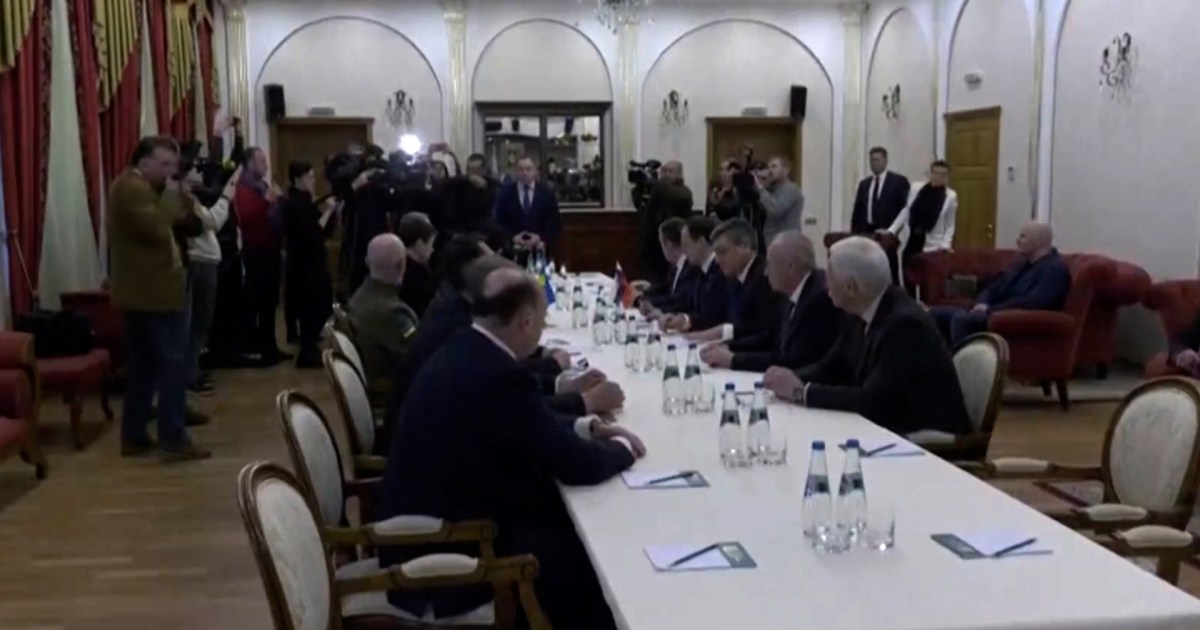The first direct peace talks between Ukraine and Russia in more than two weeks were held in the Turkish city of Istanbul on Tuesday, with little hopes of reaching an agreement that would stop Moscow's war on its neighbor for more than a month.
On Monday, the Russian and Ukrainian delegations arrived in Istanbul, and Turkish President Recep Tayyip Erdogan is expected to hold a short meeting with them before their meeting at Dolmabahce Palace.
The holding of these talks comes after Erdogan spoke with Russian President Vladimir Putin and Ukrainian President Volodymyr Zelensky on Sunday.
Erdogan said yesterday, "At every opportunity we advised the parties to make peace, at a time when everyone was running after provocation, and now we are the country that is doing its best in the path of peace as the only country whose integrity, sincerity and friendship both sides trust."
Conversations with low expectations
Ukrainian officials have played down the chances of a major breakthrough in the talks, and Ukraine's Interior Ministry adviser Vadim Denisenko said on Monday he did not expect any breakthrough on key issues.
In this context, Ukrainian Foreign Minister Dmytro Kuleba said yesterday that what his country aspires to most is "agreeing on a ceasefire."
"The minimum will be the humanitarian issue, and the maximum will be reaching an agreement on a ceasefire," Kuleba said in statements to the television, when asked about the expected scope of this round of negotiations.
For his part, a senior US official said that Putin did not appear ready to make concessions to stop the war.
Reuters quoted a US State Department official, who spoke on condition of anonymity, as saying, "All I've seen indicates that he (Putin) is not ready to make concessions at this stage."
international appeal
Meanwhile, UN Secretary-General Antonio Guterres called on Monday for an immediate cessation of hostilities and a humanitarian truce in Ukraine to allow for serious political negotiations and a peace agreement based on the principles of the UN Charter.
"Today I announce that I have asked our global humanitarian coordinator (Martin Griffiths) to immediately explore potential agreements and arrangements for a humanitarian ceasefire in Ukraine," Guterres said, in statements to reporters at the United Nations Headquarters in New York.
He added that the Russian war on Ukraine must stop because it led to the loss of thousands of lives, the displacement of 10 million people - the majority of them women and children - and the "systematic destruction of basic infrastructure, and skyrocketing food and energy prices around the world."
On February 24, Russia launched a military operation in Ukraine, which was followed by angry international reactions and the imposition of economic and financial sanctions on Moscow.
To end the operation, Russia requires Ukraine to abandon any plans to join military entities - including the North Atlantic Treaty Organization (NATO) - and to maintain complete neutrality, which Kyiv considers an "interference in its sovereignty."

